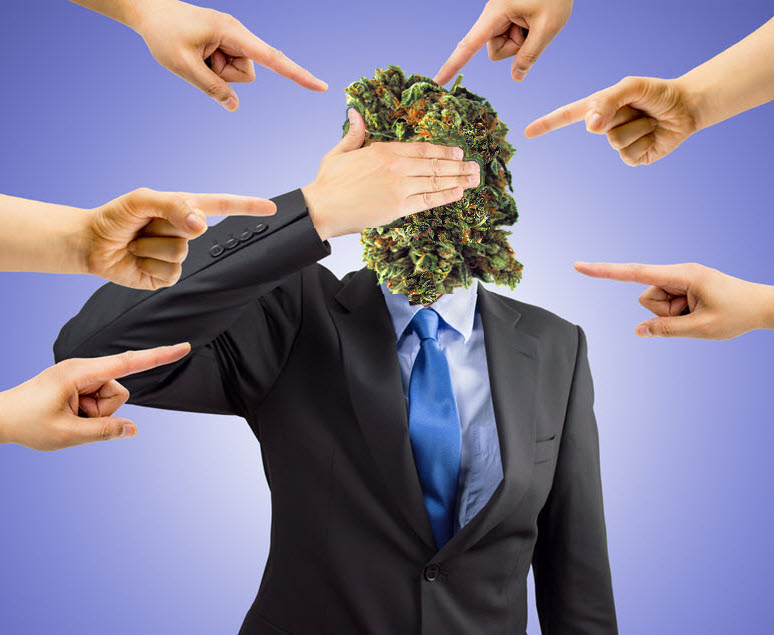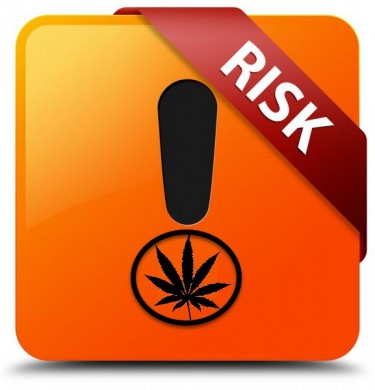
Problems attributed to cannabis that actually have nothing to do with cannabis
Every other week I see these “cannabis studies” stating that “using cannabis to treat pain could be addictive” or that “cannabis users age faster” and a bunch of other alarming titles. Of course, the vast majority of these studies could be designed to get milk to similar conclusions – but rarely do we see actual studies on the “cannabis problems” that are NOT caused by cannabis, but rather by the laws surrounding cannabis.
SIDERAN!
I’m not saying we shouldn’t assess the potential risks of cannabis. I don’t think every organism processes cannabis in the same way and as such there will be a risk profile unique to each individual. Knowing more about potential risks is a good thing so people can make informed choices about consumption.
But let’s face the fact that virtually everything you eat, drink, or do contributes to the deterioration of your existence. This is because we live in entropy. From the moment you are born you begin to die. The only thing science can do at this point is to tell us which activities are speeding up this process and which are slowing it down. But as of now – nothing is stopping this.
So when you do something as healthy as water, the entropy level is simply kept at the base level…while smoking cigarettes would speed up the process.
Now that the side rant is out of the way… let’s take a look at “Non-cannabis Problems Usually Attributed to Weed”
Crime!
One of the things that has long been associated with cannabis use is crime. History has it that wherever people use cannabis, crime is rampant. That’s because the law states that smoking, growing, selling, or “anything” is illegal, and by default, consumption itself is a criminal act.
Therefore, by the sheer number of people consuming the plant, inflated perceptions of crime are used as justification for maintaining policies that prosecute non-violent people exercising their bodies’ autonomy.
However, following the legalization of cannabis in places like Washington and Colorado, police investigations improved. This suggests that when police officers don’t spend their time and resources investigating “non-crimes,” they actually become more effective at stopping actual crimes. This creates a net benefit for society.
mental health problems
For decades, the propaganda machine has attempted to link mental health issues to cannabis. Every few years, a new “bombshell” study reveals a correlative relationship between a specific mental illness and cannabis.
When looking at the data, in practically all studies, the data is collected via self-conducted surveys, which are then interpreted by researchers. They would do complex statistical math to arrive at their conclusions and what their corporate sponsors want to say.
The problem with this is that cannabis is never responsible for or causes these problems. In virtually all cases, people experiencing some type of mental health breakdown have had a past history of mental health problems. In the 12+ years that I have been writing in this space, the vast majority of people experiencing psychotic outbursts were taking antidepressants prior to their cannabis use. But this is often discarded because it doesn’t fit the narrative.
Additionally, people who have not previously received medication but have genetic predispositions to mental illness can experience these catalytic events at any moment of stress. The sudden loss of a family member could lead them into a psychotic breakdown.
Sure, for these folks, cannabis probably isn’t the best thing for self-medication. But often it’s the only thing that brings some relief, which is why most people with mental health problems (I know) use cannabis.
drug cartels
One of the core arguments I can remember from my youth is: “Did you know that for every joint you smoke, someone died in Colombia because YOU fund the cartels!”
To the uninitiated, that would be tantamount to saying, “If you don’t wear a mask, you’ll kill Grandma!” which is absolute nonsense.
Of course, ethical consumption is something we should all consider. If you know you’re buying weed from a brutal gang that’s murdering and raping the world… then buying from them would most certainly mean taking part in the slaughter by proxy.
Just as buying electronics from companies that create inhumane working conditions for their employees contributes to suicides and poor living conditions around the world. You can play the morality card all you want, but the only reason buying weed has anything to do with the cartels is because there is a law that prohibits “non-criminals” from participating in the market.
Of course that’s shifting and we still see the cartels trying to enter the legal market – but that’s something that will eventually go away as the whole world goes legal. Taking part in a legitimate trade illegally today would be like trying to be a smuggler.
Again, this is a political problem.
bottom line
While cannabis is not a “risk-free” activity, it’s certainly not as dangerous as alcohol. However, unlike alcohol, I don’t see the same level of scrutiny towards the substance. If our goal is to educate people about the potential risk factors of drug use, shouldn’t we consider all drugs? Shouldn’t we consider Coca Cola a drug that contains 28 grams of sugar per can?
There is currently an unbalanced focus on cannabis, which is frankly a waste of resources. Government policies have stifled cannabis research for over 50 years and yet they still waste money trying to find out “how dangerous it is”.
Perhaps if we put the same time and effort into figuring out how to most effectively use it as a medicine – who knows what we might have accomplished in that time. While the past is over, maybe it’s time we focused on the benefits of cannabis, at least in the present, and not the hypothetical bad things all the time.
DON’T CREATE THE WEEDS READ MORE…

STOP PROTECTING FOOD DEBT, READ WHY!
OR..

DON’T BAIL CANNABIS FOR POTENTIAL MENTAL HEALTH PROBLEMS!

Post a comment: